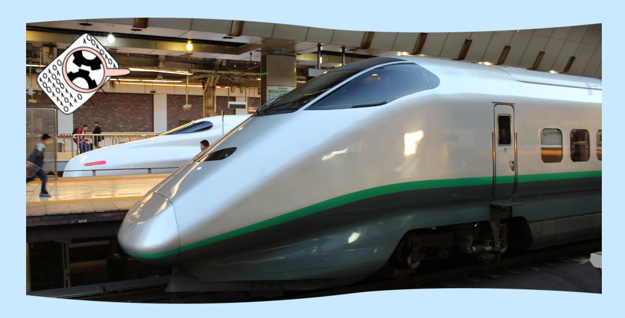The modernisation of Britain’s rail services has been a hot topic of conversation for some time. Changes have been taking place, and in recent years we have seen a range of new trains coming into use on railways across the UK, with more expected in the near future.
These new, improved trains will no doubt be welcomed by passengers, particularly in areas where outdated models have been in use for some time. However, many operators are not tapping into their full potential, limiting their ability to provide even better, more efficient services.
The power and potential of train data
Many of the new trains that are coming onto the UK's rail network capture vast and wide ranging data, most of which is going unused. For example, a lot of these trains are equipped with Internet of Things (IoT) sensors which are able to monitor a wide range of operational and safety aspects across the train's infrastructure, including the ability to count passenger numbers in each carriage. They will also likely have heat sensors installed which measure the temperatures on tracks and brakes, ensuring they're operating at safe levels.
These data sets, if used correctly, could create huge benefits for everyone, from rail operators through to passengers. Sticking with our previous examples, being able to analyse how many passengers are travelling at certain times and from where can allow operators to more efficiently delegate their train fleet, ensuring passengers and services are operating optimally. At the same time, being able to analyse track and brake temperatures can produce huge cost savings. Issues can be identified and addressed immediately and even preemptively. This will help guarantee that problems are fixed before they escalate and cause areas of track or trains to be taken offline.
Helping operators get ‘on track’ with their data
This is not to say that all rail providers aren't aware of the potential of the data their trains are gathering and producing. Some already want to harness this information to improve the services they provide, but are unable to do so. This is due to not having the expertise or tools in-house that can capture and analyse specific insights and then make decisions based off of the findings. This is not surprising. After all, having access to such vast amounts of data is a relatively new thing for the industry.
If operators do want to start making the most of the data they hold to improve services, they need support. They should look to work with digital partners who understand the information they are collecting. Using their expertise, they will be able to put in place solutions that allow operators to extract and analyse their data and use it to make strategic decisions about their services.
While it would produce benefits, working with outside expertise to put in place data solutions such as artificial intelligence platforms is not enough by itself. Operators should also ensure that their digital partners have the ability to train and upskill staff, teaching them how to understand their data and how to act upon it. Through this, rail providers can ensure they have the right skills in place to use their data to its full potential.
The modernisation and introduction of new trains has and will continue to improve rail services. But we cannot ignore the huge potential the data these trains are collecting has to make services even better. By working with organisations who can help them harness its potential, operators can create rail services that are more efficient and cost effective, benefiting everyone.

From SQL Server, to Azure, to Fabric: My Microsoft Data and Analytics journey
There is always something new in the Microsoft space, and Fabric is the latest game-changing update to impact the world of analytics.
Read moreOur recent insights
Transformation is for everyone. We love sharing our thoughts, approaches, learning and research all gained from the work we do.

Common misunderstandings about LLMs within Data and Analytics
GenAI and LLMs have their benefits, but understanding their limitations and the importance of people is key to their success.
Read more
Shaping product and service teams
How cultivating product and service teams to support the needs of the entire product lifecycle can ensure brilliant delivery.
Read more
Building ‘The Chatbot’ - Our experience with GenAI
Learn how we harnessed to power of Generative AI to build our very own chatbot.
Read more


